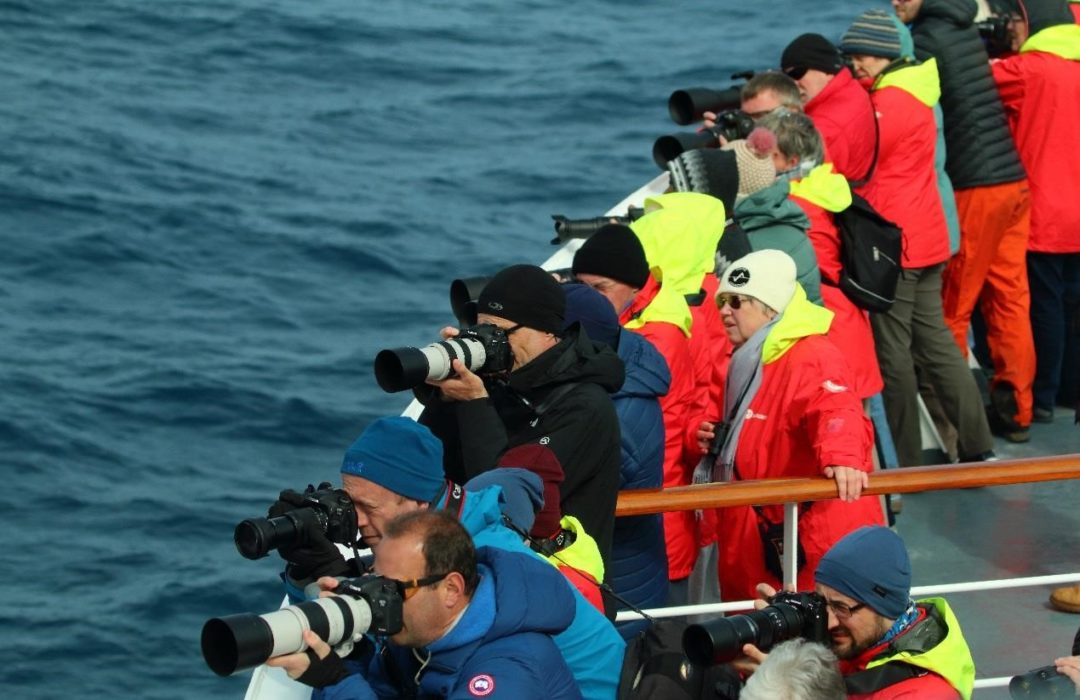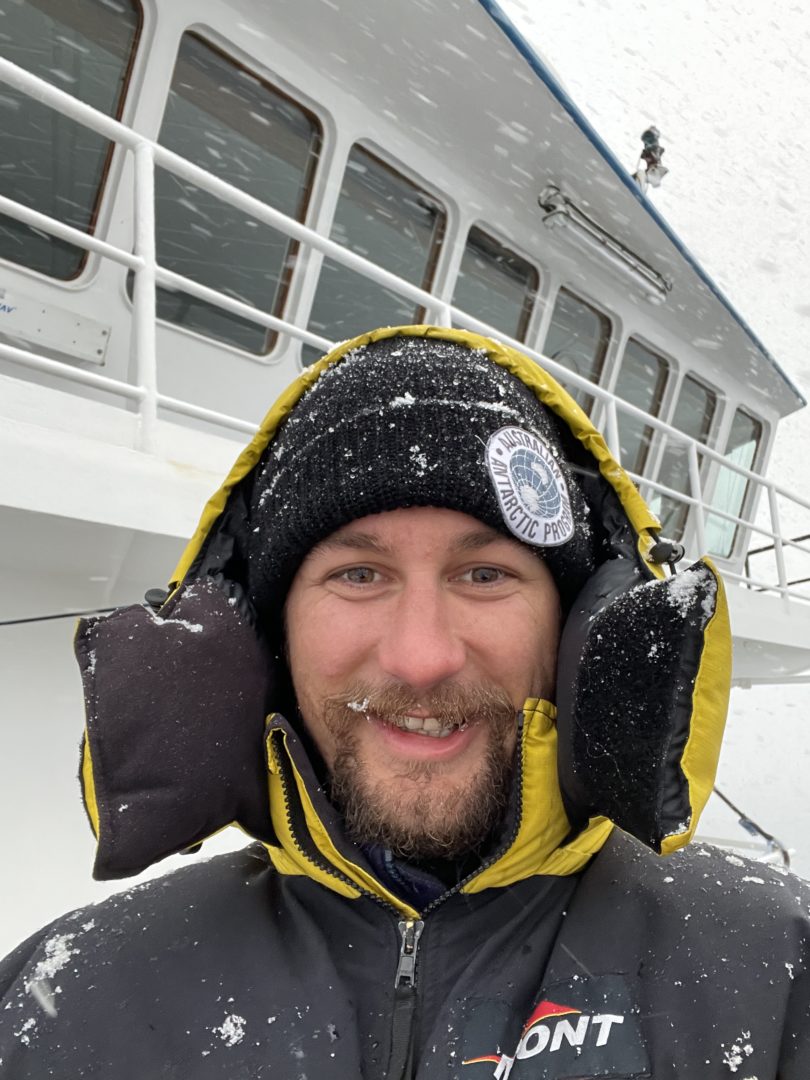Plastic pollution is ubiquitous in terrestrial, freshwater, and coastal/marine ecosystems, and can be generated at the land or ocean depending on anthropogenic activities. This interdisciplinary season welcomes contributions on source, sink and management of all size plastics (i.e., macro-, micro- and nanoplastics) at the catchment-to-coast continuum. We will consider recent advances in the observational, laboratory, and modelling of plastics; novel monitoring methods and strategies for plastic waste; the fate and transport of plastics; and eco-toxicological effects of plastic and plastic-bound other contaminants within the environmental compartments. Plastic management (at source) and plastic recovery from the environment (like from the coast and ocean) from technological, economic, social and policy perspectives will receive attention. Research related to, but not explicitly listed above, may also be considered.
The Intergovernmental Negotiating Committee on Plastic Pollution (INC) is a process coordinated by the United Nations Environment Programme to develop an international legally binding instrument on plastic pollution, including in the marine environment. The fourth session (INC-4) took place in the Shaw Centre in Ottawa, Canada, from April 23rd to 29th of 2024. Although this is a country-driven negotiation process, it allows the attendance of non-governmental stakeholders as observers (such as industry representatives, academics, and civil society organizations). Over 2500 people attended INC-4, between Member States and observers. The negotiations focused on working on the Revised Zero Draft text. Main outcomes of INC-4 were the establishment of a mandate for intersessional work (technical work to be carried out between INC-4 and INC-5) and of a legal drafting group. The next and last INC is scheduled to happen from November 25th to December 1st in Busan, Republic of Korea, when the treaty text should be concluded.
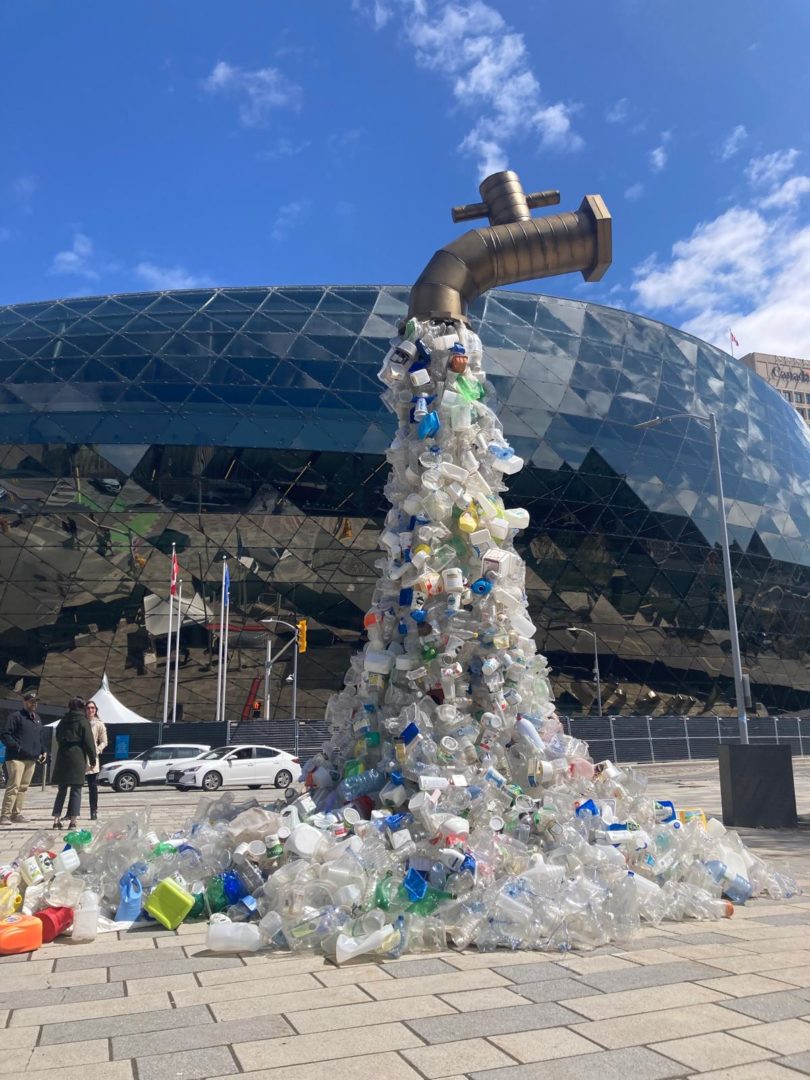
Image: Plastic tap at INC4. Image credit: Natalia de Miranda Grilli.
The Big Fish Card Game is a tabletop game all about sustainable fishing and ocean literacy. It brings together and showcases research about the importance of Big Fish (large individuals within a species) in marine ecosystems and how through sustainable fishing we can help ensure they return and are present in the future. The game uses various gaming mechanics to allow fishers to manage a fishing spot and understand the importance of Big Fish and how various external factors and events affect marine habitats.
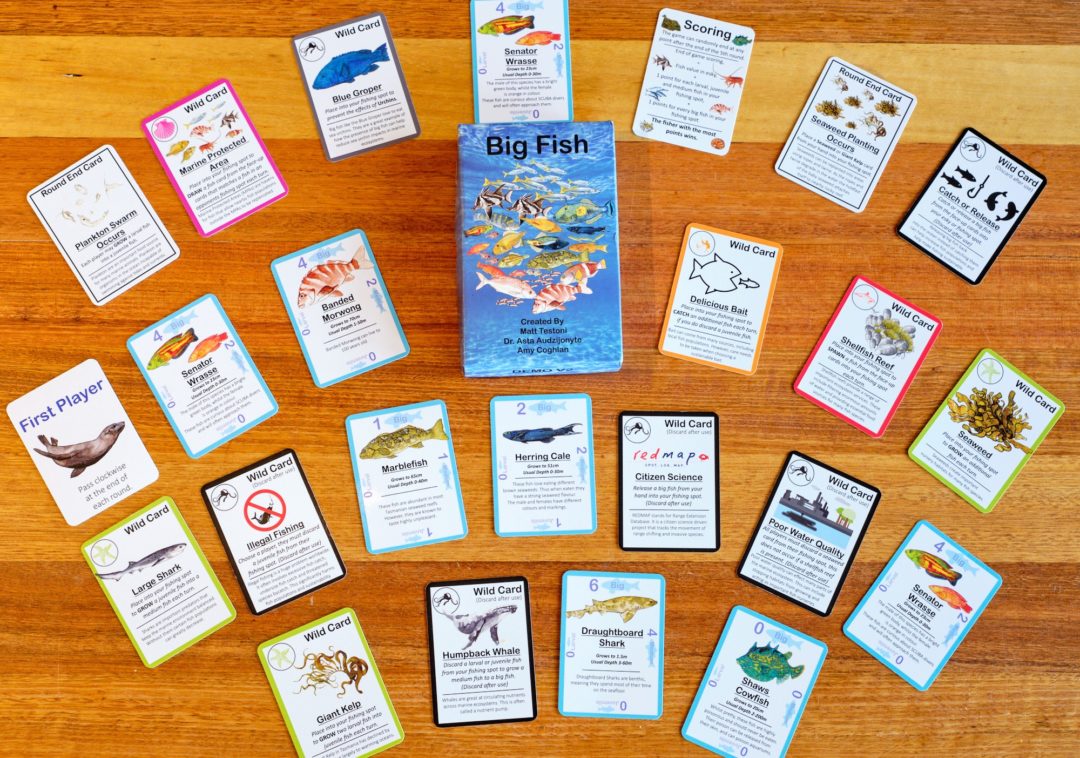
Image: Big Fish Card Game. Image credit: Matthew Teston.
Predictive modelling to inform institutional processes in integrated oceans management
About the project
This PhD will examine what factors or components of integrative capacity can or cannot be incorporated into decision-support modelling tools. The aim is to expand the capacity of predictive coastal social-ecological system models to include a richer and more authentic variety of human responses, particularly social and political dynamics to do with policy relevant decision making and the responses of coastal ocean users to decisions around the use of spatial areas and resources.
The project will leverage well respected CSIRO system models used in numerous marine ecosystems around Australia and the globe. Once these modelling frameworks have been expanded by incorporating the appropriate integrative governance processes, decision-making and human responses, the project will use these predictive models to map relationships between governments and end-users (decision and policy makers).
The work is part of a bigger project considering integrated governance and will draw on data collected in that larger project as a basis of the modelling work. The goal of the project is to develop predictive models that could assist in strengthening integrative capacity for management issues, planning for climate change and supporting the sustainable and equitable development of coastal ecosystems and marine industries.
Primary Supervisor
Prof Marcus Haward
Closing date: 6 March 2023
Please find more information and selection criteria here
Policy learning from climate interventions in Global Marine Hotspots
About the project:
To sustain the significant benefits of marine ecosystems into the future, policymakers must design and implement an ever-expanding range of marine interventions at a variety of ecological and governance scales. This includes those that propose to mitigate climate change (e.g., seaweed aquaculture and carbon trading), as well as those promoting adaptation and resilience (e.g., assisted marine animal and plant migration (Morrison et al 2020)). Policymakers must also navigate radically different interests in marine ecosystems, and at the same time, the risks of failure to intervene responsibly are significantly higher. This highlights the critical role of policy learning in advancing governance transformation, whereby governance moves from incremental improvement of established strategies, to adjustment for evolving conditions, and finally to implementation of new strategies (Dunlop and Radaelli 2018).
This project will examine the forms and role of policy learning arising from planning, implementing and evaluating climate interventions within specific sites experiencing global warming. The project will use planning and management for the marine estate in Tasmania, Australia, as a case study in which a range of place-based interventions (e.g., kelp restoration, fisheries stock enhancement) have been led by public, private and community actors. The project will identify the array of interventions, their scales of intensity of cause and effects, the synergistic effects of groups or sequences of interventions, and the marine management goals they were designed to address. It will then examine the role of current institutional and policy conditions (such as policy framing, scaling and core beliefs, local and multi-scale networks) across the suite of interventions and the extent of any policy learning. Drawing on the emergent concept of responsible innovation (which includes processes for considering risk, feasibility and ethics), the project will identify properties of site and estate-level governance which enhance or hinder policy learning for more responsible intervention.
Primary supervisor:
Prof Gretta Pecl
Please find more information about eligibility, selection criteria and application process here
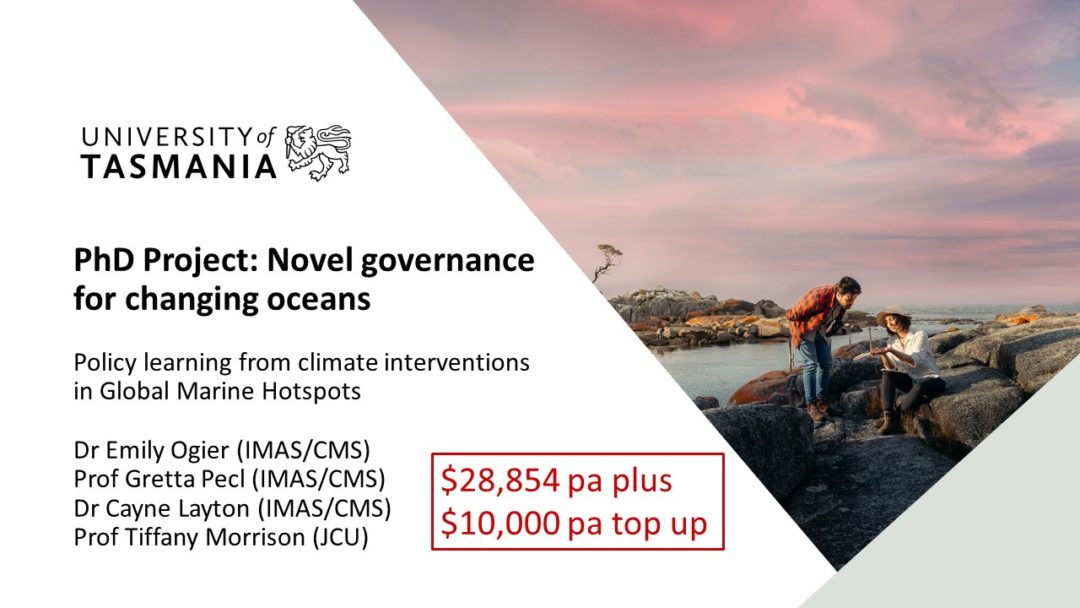
Understanding risk literacy in the context of decision-making for a sustainable Blue Economy
About the project:
The growth of the Blue Economy is seeing novel activities emerge in Australian marine environments to support energy and living resources production systems. This is driven by a potential offshore expansion of aquaculture and diversification of cultured species, and the push to transition to renewable energy, including but not limited to offshore wind and tidal energy. It is expected and preferred these novel activities be sustainable, with environmental, economic, and social implications of new developments considered. To achieve sustainable outcomes, decision-making processes should be comprehensive across stakeholder groups, including non-specialists.
By definition, novel activities are subject to a lack of empirical evidence on performance and the sustainability of their operations, and inherently involve risks. In this context of uncertainty, assessing the sustainability of outcomes is challenging if embedded within an evidence-based decision-making framework. Risk literacy is the ability to evaluate risks when making decisions. Research on risk literacy – and communicating risks of developments to stakeholders – is more common in the fields of public health, medicine, and finance, but less so in marine management for primary industries. The overarching aim of this project is to examine how risks could be best communicated to stakeholders for informed decision-making leading to sustainable outcomes for emerging marine industries in Australia.
This HDR project will 1) conduct a literature review on risk literacy and communications in fields of environmental science and management for primary industries, particularly in the context of making judgements about the sustainability of activities ; 2) propose a conceptual framework connecting sustainability, uncertainty, and risk literacy in the context of marine primary industries; 3) examine how different people, including experts and non-experts, perceive and understand risk, including what factors can influence this understanding; 4) propose approaches or tools to communicate risks with uncertain outcomes to broad groups of stakeholders by considering links between risk literacy and decision-making by individuals and organisations, for example through scenario-based decision-support tools or comparisons with other industries and lived experience.
About the project
Political factors like political will and leadership, and political positioning by interested stakeholders can inhibit the transition for governments to integrated oceans management (IOM). Little is known about how to work with these political factors to achieve integrative capacity. This PhD project will examine and compare the influence of political leadership in Australia and Canada. The candidate will investigate how politics shapes policy integration through institutional architecture, policy design and the broader policy process.
The candidate will undertake empirical and qualitative research to assess which political factors facilitate or hinder the implementation of IOM. This PhD project will contribute to a set of recommendations that Australian and Canadian governments can utilise to strengthen integrative capacity and governance for the transition to IOM.
Primary Supervisor
Assoc Prof Joanna Vince
Please find more information about eligibility, selection criteria and application process here
This is a Pitch funding project within Corrine's PhD project
Background
Using Tasmania as a case study, this project is concerned with how communication can be used to mediate conflicts in aquaculture. It will investigate which communication strategies are critical to mediating the debate in this highly contested, strongly negative and polarised communication space. Social influence modelling will then be used to understand how these communication strategies reciprocally impact on one another in non-linear ways.
The pitch funding will be used to conduct a Tasmania wide self-administered stakeholder survey of 550 participants to identify the causal mechanism of conflict, the potential to reduce this conflict, and current communication networks. The survey results will form the base for the development of a communication framework to support effective management and policy decision-making within the new paradigm of complex communication networks, transnational debate, and increasing public unrest.
This is a Pitch funding project within Di and Malcolm's PhD projects
Successful environmental and conservation outcomes are largely dependent on understanding and integrating the social dimension into planning and management. However, social data is often difficult to collect and translate into existing management decision models. Public participatory GIS (PPGIS) provides a means for collecting individual and community-based data that can readily support spatial planning. PPGIS can identify spatially explicit information for a range of planning needs - such as place values, management preferences, ecosystem services – that can be easily incorporated with biophysical data layers to support decision making.
The Landscape Values Mapping Platform (LVMP) was developed as a tool to facilitate the collection of spatially explicit social data to aid place-based environmental planning efforts. The primary function of this tool is to enable researchers to administer quantitative, scale-based questionnaires alongside PPGIS mapping segments. Researchers can use a range of survey question types and adapt PPGIS mapping to their particular research needs, including specifying what information to map, what mapping categories to include, how terms are defined, and the scale at which participants can map points, amongst many other features
With this tool, environmental scientists and decision makers can effectively map the social or human components of natural resource management, land use planning, marine spatial planning, and conservation management towards successful place-based outcomes.
Antarctica holds a special place in the hearts of many around the world. Due to this and its remoteness, it has been spared many of the human pressures the marine environment faces around the world. However, humans have a far-reaching influence, and the Antarctic peninsula is the focus of the majority of human interactions with the Antarctic Continent. The Antarctic Peninsula is changing rapidly, it’s one of the fastest warming regions in the world, species are shifting south, temperate plants are taking hold, fishing and tourism are increasing year on year and this is on a backdrop of industrial removal of seals, then baleen whales which reduced many populations to near zero. Most are yet to fully recover.
Fortunately, in the mid part of last century it was agreed that Antarctica be persevered for peace and science. In the Southern Ocean surrounding Antarctic most marine mammal and seabirds are now protected and fishing is managed by CCAMLR an organisation which endeavours to set krill catch limits that minimise the effect on the ecosystem, rather than the more traditional approach - maximising the total catch. Monitoring predator populations is a critical part of this ecosystem approach, and since the mid 90s predator monitoring has been focused on land-based krill predators; penguins and seals, mainly due to the relative ease of access. Less attention has been placed on baleen whales which as a group are likely the greatest consumer of Krill in the Southern Ocean and their recovering populations have been shown to exert a greater influence over penguin and seal populations than krill fishing itself. The lack of baleen whale monitor is largely due to the significant logistical and financial outlay that is required is currently unachievable in the vast and remote Southern Ocean. However, most of the krill fishing occurs in a very concentrated region surrounding the Antarctic peninsula. A region regularly and repeatedly by accessed by tourist vessels. We have developed a relationship with a tour company to put observers on their vessels to collect whale data that will allow us to complete the predator puzzle and accurately set krill catch limits that reflect the needs of the ecosystem.
CMS works at the interface between humans and nature, to develop multi-disciplinary research to understand and manage our oceans. CCAMLR is one of the only high seas management bodies that considers the needs of the ecosystem, and arguably effectively manages exploited natural recourses. The lessons learned through this project in providing research that targets specific management needs to an international management body will be applicable and relevant for the larger CMS community.
